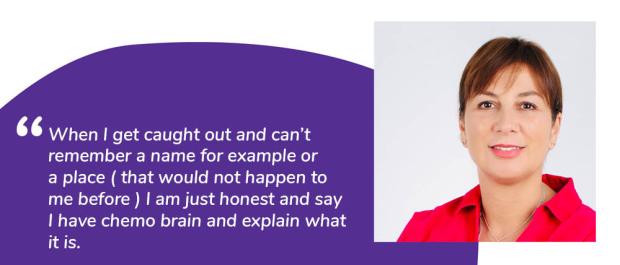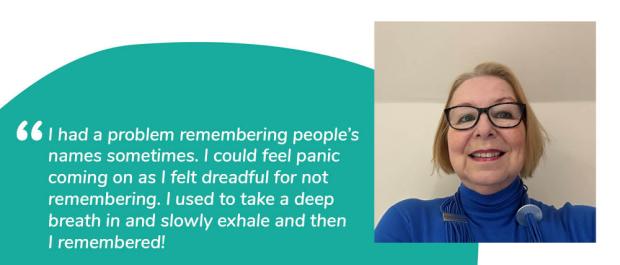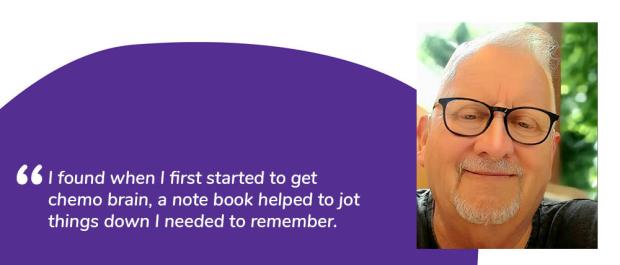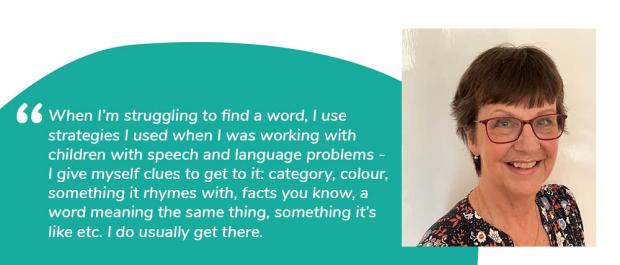Top tips for helping with 'chemo brain'
Cancer-related cognitive impairment - or 'chemo brain' - can affect anyone with cancer, and can happen whether they have had treatment with chemotherapy or not. It is used to describe the impact on memory and attention that the individual experiences, and can be challenging for some people.
We asked members of our Facebook group for their 'top tips' and suggestions on what they have found helpful to manage 'chemo brain'. Here is what they told us.

Take your time and keep things simple

- Don’t attempt to multi-task. It can help to concentrate on just one thing at a time.
- Avoid loud or busy environments when you are trying to do a task for example, writing a message or completing a form. Turning off the TV or radio can help to reduce distractions.
- Don’t apologise for the impact of chemo brain. It can help to try and accept that this can be a symptom of your lymphoma or treatment, and try not to feel bad about it.

These suggestions might also help
- Putting up post it notes around the house helps to remind me of jobs I have to do or phone calls I have to make.

- Make lists and notes. Having a smart speaker or using your phone to set reminders can help too.
- Having a calendar in the kitchen helps to remind me - and others around me - what my plans and appointments are. Keeping a diary in my bag also means I can write down everything important as it happens. I find this more helpful than using notes on my phone (although other people might find phone notes helpful).
- Writing everything down is helpful - not just things that need doing but also things you want or need to tell people. It can also help to write a 'to do' list and tick things off when you have achieved them.
- Keep your brain active with simple crosswords and wordsearches. You could ask family or friends to play word games with you (for example, listing countries starting with A, B, C and so on).

This information comes from our Facebook users and online support meeting members, and is a list of suggestions from the community based on what they personally found useful and what they would like to pass on to others. This is not intended to be medical advice and is not a replacement for advice from your medical team. If you are looking for specific guidance for your own personal circumstances always consult your medical team.
